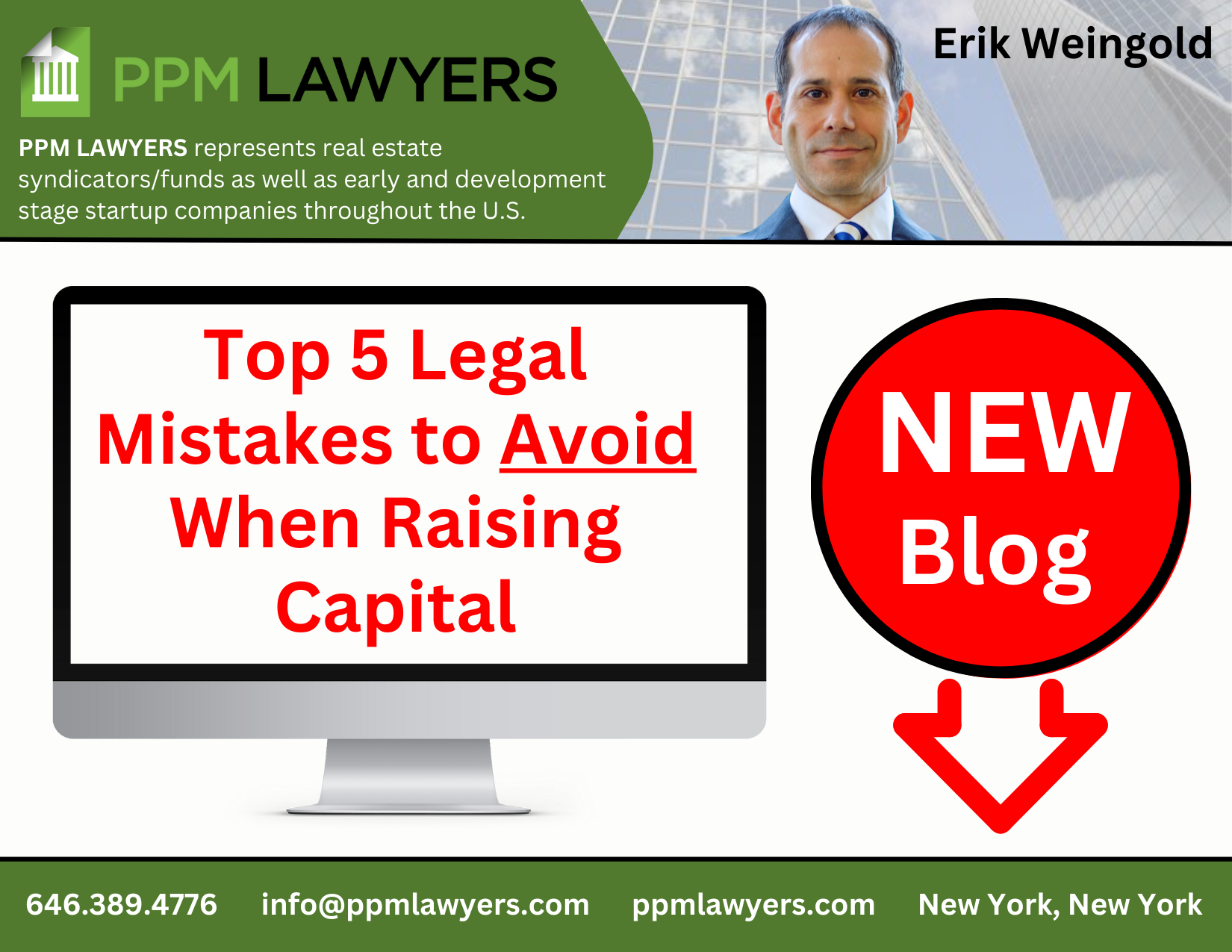Introduction
Raising capital for your business, real estate syndication, venture, or fund through a private placement can be a complex process. To ensure a successful offering and protect yourself from potential legal issues, it’s crucial to avoid certain mistakes that could hinder your efforts or even lead to serious consequences. In this blog post, we’ll discuss the top 5 legal mistakes you should avoid when raising capital in a private placement.
1. Insufficient Disclosure In The Private Placement Memorandum (PPM)
One of the most critical aspects of a private placement is the disclosure of material information to potential investors through the Private Placement Memorandum (PPM). Failing to provide accurate and comprehensive material information about your business, its financials, risks, and other key aspects can lead to potential liability and claims from unhappy investors.
To avoid this mistake, ensure that your PPM is thoroughly prepared and reviewed by experienced legal counsel. Include all necessary disclosures and ensure that the information provided is accurate, up-to-date, and complete. Remember that it’s generally better to provide more information than less when it comes to investor disclosures.
2. Ignoring Securities Laws And Regulations
Both federal and state securities laws govern private placements, and failure to comply with these regulations can result in severe penalties, including fines, legal action, and even criminal charges. Some of the most common regulations you should be aware of include Regulation D, Regulation A, and state “Blue Sky” laws.
To avoid violating securities laws, work closely with experienced legal counsel who can guide you through the complex regulatory landscape. Ensure that your offering complies with all relevant regulations, and stay up-to-date with any changes in the law that could impact your private placement.
3. Inadequate Investor Qualification
Private placements are typically limited to accredited investors (but not always), as defined by the Securities and Exchange Commission (SEC). Failing to properly qualify your investors can lead to regulatory issues and potential liability.
To avoid this mistake, implement a thorough investor qualification process that includes the use of investor questionnaires and verification of accredited investor status. This process should be part of your overall compliance strategy and should be reviewed periodically to ensure it remains effective and up-to-date.
4. Poorly Drafted Subscription Agreements And LLC Operating Agreements
Subscription agreements and LLC operating agreements are essential legal documents in a private placement. They outline the terms and conditions of the investment, the rights and responsibilities of the parties involved, and other critical aspects of the transaction.
To avoid potential disputes and legal issues, ensure that your subscription agreements and LLC operating agreements are drafted by experienced legal counsel. These documents should be clear, concise, and tailored to the specific needs of your offering.
5. Failure To File Necessary Notices With The SEC And State Regulators
When conducting a private placement, it’s crucial to file the necessary notices with the SEC and state regulators. Failure to do so can result in fines, penalties, and potential legal action.
To avoid this mistake, work with legal counsel to ensure that you file all required notices, such as Form D and state notice filings for Regulation D offerings, on time and with the appropriate regulatory bodies. Additionally, stay informed about any changes in filing requirements that could impact your private placement.
Conclusion
Raising capital through a private placement can be an effective way to grow your business or fund your next venture. However, it’s essential to avoid common legal mistakes that can jeopardize your offering and expose you to potential liability. By working closely with experienced legal counsel, staying informed about securities laws and regulations, and implementing best practices throughout the process, you can successfully navigate the complex world of private placements and achieve your fundraising goals.


